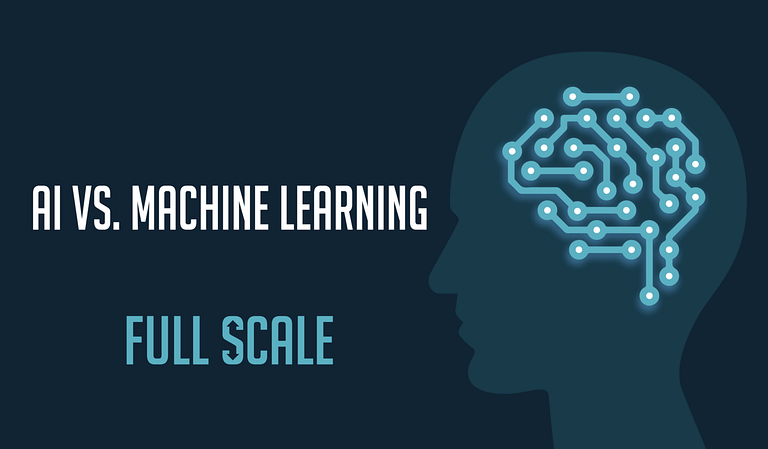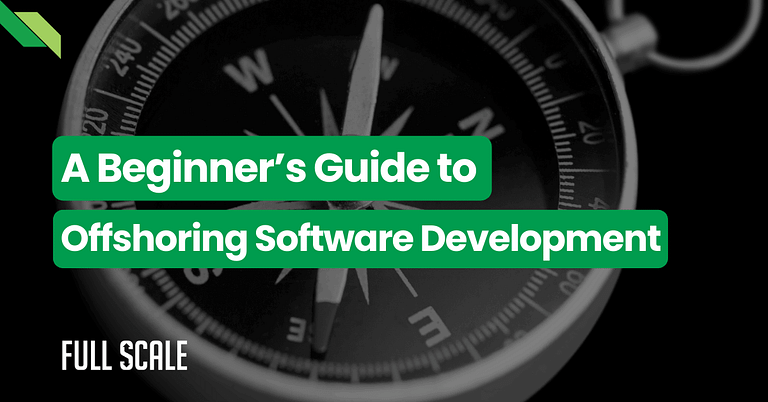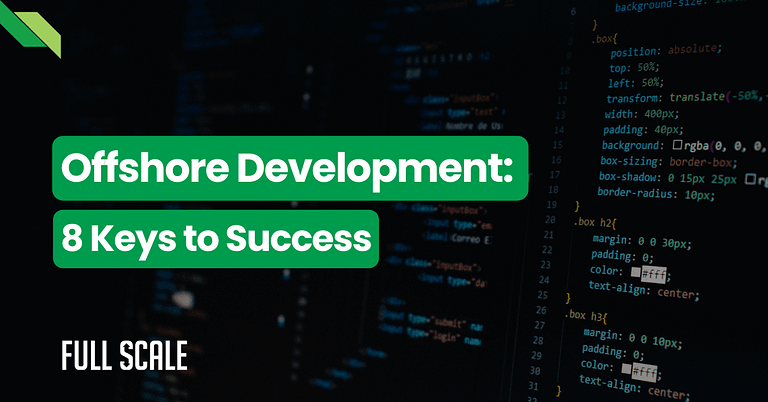Is there a battle between ai vs machine learning? Or is it simply a matter of using the right term in the tech industry? In this article, let’s tackle if there are differences that set the two apart.
AI vs. machine learning is associated with data-driven businesses. As entrepreneurs focus on results rather than their implementations, they fail to differentiate between AI vs. Machine Learning. Hence, the confusion between the two fields continues.
Just to be clear, there is no rivalry at all. Machine learning is a subset of artificial intelligence(AI). AI is not a system, rather it is a concept that you implement in a system. As such, AI is the science that helps train computers to mimic humans.
On the other hand, machine learning allows a machine to learn on its own with no involvement in programming. Time is the key here; the system learns and improves automatically with time.
In this AI vs. machine learning saga, the two terms are always used interchangeably. So, now let’s get into the basics and learn its primary distinction.
AI vs. Machine Learning: The Basics
AI vs. machine learning is also associated with Big Data. Since Big data means too much information, it needs analysis to filter the needed information. And that is Data Science.
Introduction to Data Science
Data Science is a multi-disciplinary entity that deals with data in a structured and unstructured manner. It uses scientific methods and mathematics to process data and extracts information from it.
It uses powerful hardware along with an efficient algorithm and software programming to solve or obtain such information.
For example, suppose that you are a startup owner, and you need to collect a large amount of information. In dealing with massive information, you’ll need robust data analytics to make your search successful. Most of the time, AI vs. machine learning concepts confuse startup owners. However, dealing with data does not solely revolve around these two.
We have what we call a hierarchy of studies, wherein Data Science is on top.
The Hierarchy of Studies
The immense popularity of Data Science brought the fourth industrial revolution in the world today. And for additional references, AI falls into three categories:
- ANI -Artificial Narrow Intelligence
- AGI – Artificial General Intelligence
- ASI – Artificial Super Intelligence
So, where do we place machine learning now? Actually, Machine Learning (ML) is a subset of AI (which can also be a subset of those mentioned categories).
ML involves algorithms modeling which helps make predictions based on the recognition of complex data patterns and sets. It has algorithms that learn from the data provided, gather insights, and make predictions on previously unanalyzed data.
The different methods of machine learning are:
- Supervised learning (Weak AI, task-driven)
- Non-supervised learning (Strong AI, data-driven)
- Semi-supervised learning (Strong AI, cost-effective)
- Reinforced machine learning (Strong AI, learns from mistakes)
An aim to make an AI vs. Machine Learning comparison is futile because they both belong to the same field. Additionally, do you know that under ML is another field called Deep Learning (DL)? So, is it AI vs. Machine Learning vs. Deep Learning now?
Short answer: no. DL is a subset of machine learning where you build algorithms that follow a layered architecture. It has multiple layers to progressively extract higher-level features from the raw input.
For example, in problems like image recognition and image processing, DL has lower layers that may identify edges and higher layers that may identify the concepts relevant to a human such as digits or letters or even faces.
DL refers to a deep artificial neural network that is applied to startup projects that deal with sound recognition, image recognition, natural language processing, etc.
AI vs. Machine Learning: What is AI?
As the term suggests, artificial refers to something that is not natural, while intelligence refers to the ability of humans to think or understand.
In AI, there is an acquisition of knowledge using machines. In other words, the machine can harness intelligence and apply knowledge.
For example, building computer applications that smartly mimic humans with decision making. Others build systems to look for the optimal solution to the given problem or certain circumstances. Overall, the goal is to improve wisdom or intelligence using AI concepts.
Applications
Here are some applications of Artificial Intelligence:
Healthcare
AI is a study used to emulate human intelligence into computer technology that could assist doctors, patients, and other healthcare stakeholders in ways such as:
- Cataloging medical information
- Devising novel tools to support decision-making and research
- Integrating activities in medical, software, and cognitive sciences
- Creating a content-rich discipline for the future scientific medical communities
Business Intelligence
The perfect example of AI applied to businesses is chatbots. These micro-applications are already incorporated into websites and web apps to provide efficient customer service.
Education
Universities use AI to automate grading systems, giving educators more time to focus on lesson preparation.
Autonomous vehicles
AI is applied to vehicles through advanced tools to gather information, including long-range radar, cameras, and LIDAR. Actually, there are different technologies used in different vehicle parts and features, but it has one goal—to collect different data.
Autonomous vehicles have broad AI features. Here are some common examples:
- Instruct the car to the gas station or recharge station when it is running low on fuel.
- Find the quickest route or adjust the trip’s directions based on known traffic conditions.
- Communicate with passengers using speech recognition for advanced communication.
Cyborg Technology
Yes, it seems like in the movies but scientists are looking into possibilities of augmenting the human brain and body to enhance its abilities. Certain studies are conducted to apply AI to people with amputated limbs. It allows the brain to communicate with a robotic limb and gives the patient more control. This enhancement would significantly reduce the limitations that amputees deal with daily.
AI vs. Machine Learning: What is Machine learning
Machine learning is the acquisition of a skill or knowledge. Unlike AI, its goal is to boost accuracy rather than boost the success rate.
How? Machines accept data, process it, and continue to learn from it.
For example, the application in smart conference rooms is a type of machine learning. A system is built to learn from the given data to maximize its performance. Examples of these inputs are the type of users and their devices, type of meetings, etc. As a result, the system keeps on learning new stuff, which may involve developing self-learning algorithms.
Applications
Machine Learning, together with new technologies, continue to change the way we live over the past years. Here are some machine learning applications:
- Cognitive Services
- Medical Services
- Language Processing
- Business Management
- Image Recognition
- Face Detection
- Video Games
Build Your Startup with Full Scale
Basically, this article clarifies the confusion between AI vs. machine learning. It presents the primary points of the difference between AI and machine learning. However, if you want to go deeper into these fields, Full Scale is just one click away.
If you are interested in these fields, you can ask experts to find out more.
Having said that, we have experts in this field such as data scientists, data analysts, and machine learning experts with R and Python programming experience to help kickstart your data-driven project. We also have dedicated project managers and software developers to help you build your startup.
There are enormous challenges under data-driven projects and it is a challenge working with AI and machine learning models, but everything has a solution. Talk to us today and we will help you overcome these challenges.



